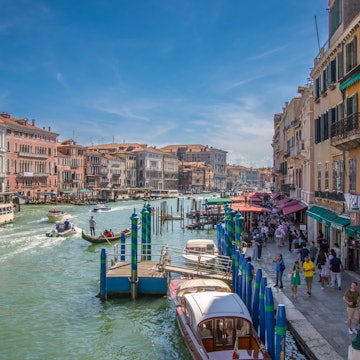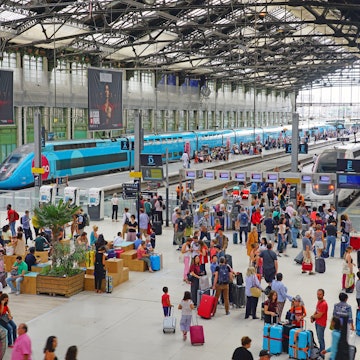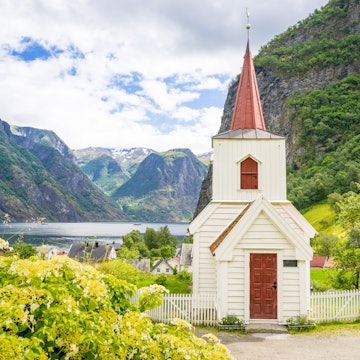

The Museum of Modern Art, one of the world’s best museums for contemporary art, recently underwent a $450 million renovation. If one were to turn the MoMA upside down, shaking the permanent collection featuring household names like Andy Warhol, Claude Monet and Pablo Picasso, one couldn’t have done a better job of revamping the space.

The reopening adds a massive increase in gallery space, a new store and a better general flow, but it can also be disorienting to those familiar with the old space. We spoke to Sarah Suzuki, Director, Opening of the new Museum and Curator, Department of Drawings and Prints for the inside scoop on making the most of your visit inside the new MoMA.
What’s changed at the MoMA
In the past, the museum has been crowded, and even with timed tickets for popular shows, the experience was more akin to being a sardine in a can than a soothing experience. Three million visitors pass through the museum each year, and the new renovations include 47,000 sq ft more exhibit space that helps alleviate some of that crush. The museum is open every day (unlike most museums in New York which are closed on Mondays) so there is more time to visit, and now, more space.
The lobby is much bigger and brighter, so even with long admissions lines, it is a more pleasant experience. If you buy your tickets online and pick them up at the kiosks, you’ll be able to breeze right in.

What to see at the MoMA
Make sure to grab a free audio guide or download the MoMA app for free on your phone. The guides offer ideas for seeing the museum highlights, conversations with artists and further details about much of the artwork. It’s a handy guide to have on hand as well as a way to get access to the digital map. Before you rush upstairs, Suzuki recommends spending time with the Philippe Parreno installation, Echo, on the ground floor. “Its choreography is determined by an ever-changing algorithm, so it never repeats,” Suzuki says.
Once inside, most tourists head straight to Van Gogh’s Starry Night on the fifth floor, crowding around and waving their iPhone cameras. That’s a rookie mistake. According to Suzuki, “Many visitors start at the top of the building and work their way down, which sometimes means that the upper floors feel busier. Instead, try working your way up from the new galleries on the ground level to the contemporary collection on two.” The flow will run you chronologically backward through the permanent collection, while also giving you some elbow room to really experience the art. “The expansion has given us additional room to spread out, which has been terrific,” says Suzuki.

How to explore the MoMA
The massive collection is now broken up into bite-size galleries for easier digestion, with an endless way of restructuring and reviewing the infamous art you may have seen before. For instance, in the “Downtown New York” gallery, the running dogs and UFOs of Keith Haring are side by side with Jenny Holzer and Lady Pink’s collaborative spray-painted war scene, and together with Basquiat and Jeff Koons, they recreate a scene out of the ‘80s Village. It’s fun to see the artwork in relation to each other and read through the gallery themes that hold them together. The MoMA is taking the lead in reframing art history to include POC, women, immigrants, LBGTQ+ communities and providing the framework for these artists to have equal billing. For instance, on the 4th floor, it’s cheering to find the Lee Krasner splatter painting side-by-side with her husband, Jackson Pollock’s own action piece. Looking at the two together allows the viewer to juxtapose and think about their connection.
With three floors of the permanent collection and multiple spaces for rotating exhibits, there is a lot to see. Allow time to go at a leisurely pace, and don’t feel you must see everything in one visit. Another tip from Suzuki: “Don't forget to take the escalator down from the ground floor to visit the film galleries!” Upcoming film programming rivals any art-house cinema with interesting screenings from around the world.

Where to take a break
Another major change in the museum is the addition of more space to relax. There are couches throughout to sit and contemplate the art, and crowd favorites that used to feel cramped, like the room-installation of Matisse’s The Swimming Pool, now feel like there is more breathing space. In between the art, there are also new lounging areas. “Phone charging stations can be found at the Espresso Bar on the 2nd floor (a jolt for you and your device!), and at the Yoko Ono commission on the 3rd floor,” says Suzuki. More in need of a bathroom break? “The new restrooms on 3W are state of the art and there are lots of them,” says Suzuki. “I have yet to see a queue there. You can [also] find water fountains at all our restrooms if you need a hydration break.”
Where to eat
Food options abound from the upscale Michelin-starred restaurant, The Modern, where you can make reservations, to Cafe 2, a casual (yet delicious) cafe. The light bites at the year-round Terrace Cafe on the 6th floor have the bonus of directly overlooking the infamous sculpture garden, which, thankfully, remains. “For me, the Abby Aldrich Rockefeller Sculpture Garden is one of the great places in New York City, and while we reinstall it with new art regularly, the space itself remains unchanged,” says Suzuki. “It's such a peaceful oasis, and beautiful in every season.”
Probably the biggest secret to the museum is what else the admission can get you besides entree to some of the greatest art in the world. “A ticket to MoMA is a ticket to much more!” says Suzuki. “You can use it for a free, same-day film ticket, or within two weeks for a visit to our sister institution, MoMAPS1, which is just two subway stops away.”
You might also like:
Quirky art and cultural festivals in the USA
Inside the life of a modern day butler
Warhol in the US: Where to see the iconic pop artist's work















